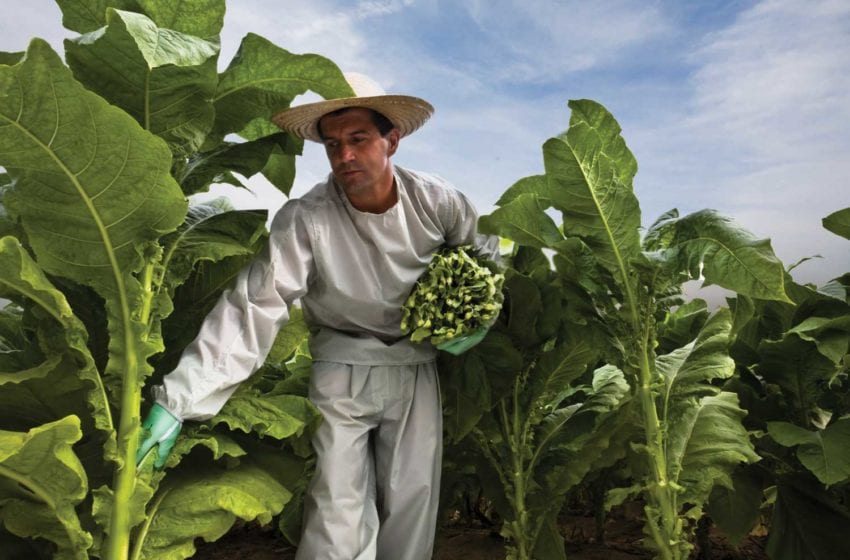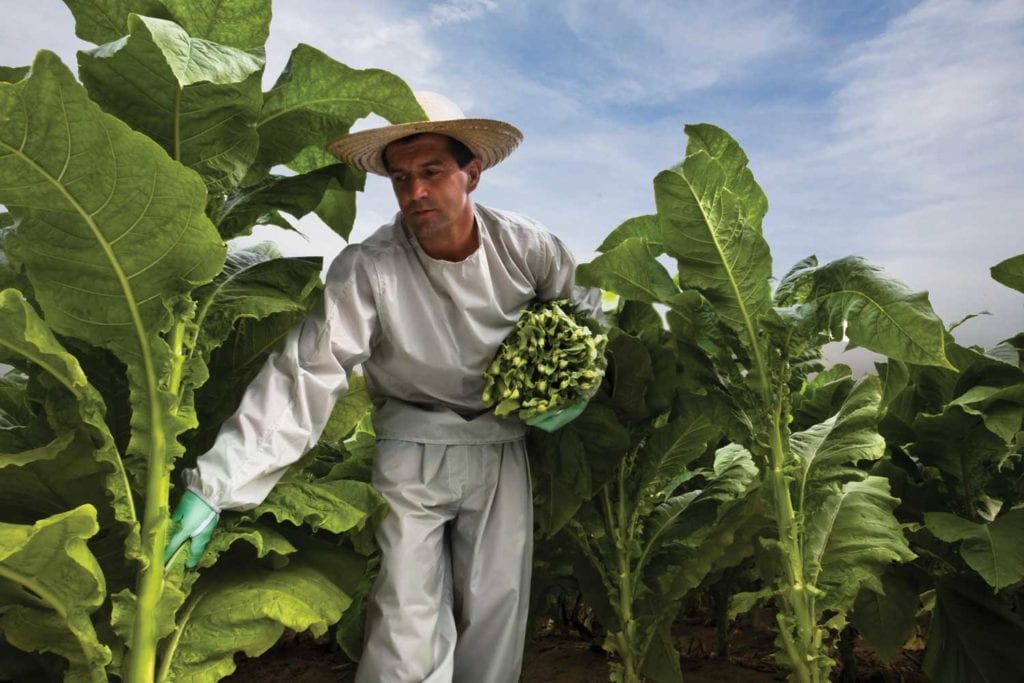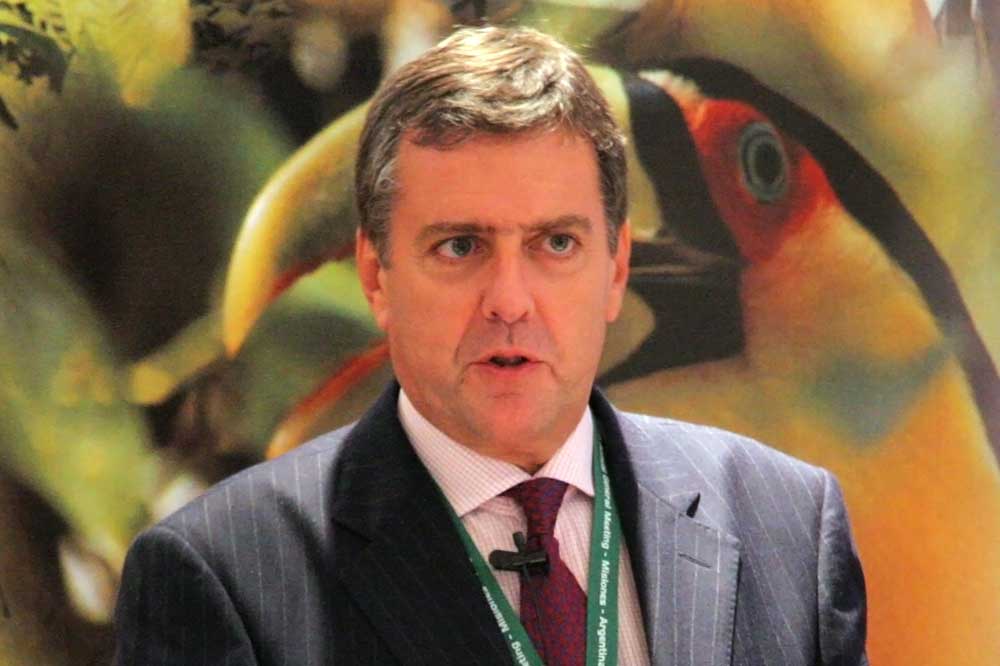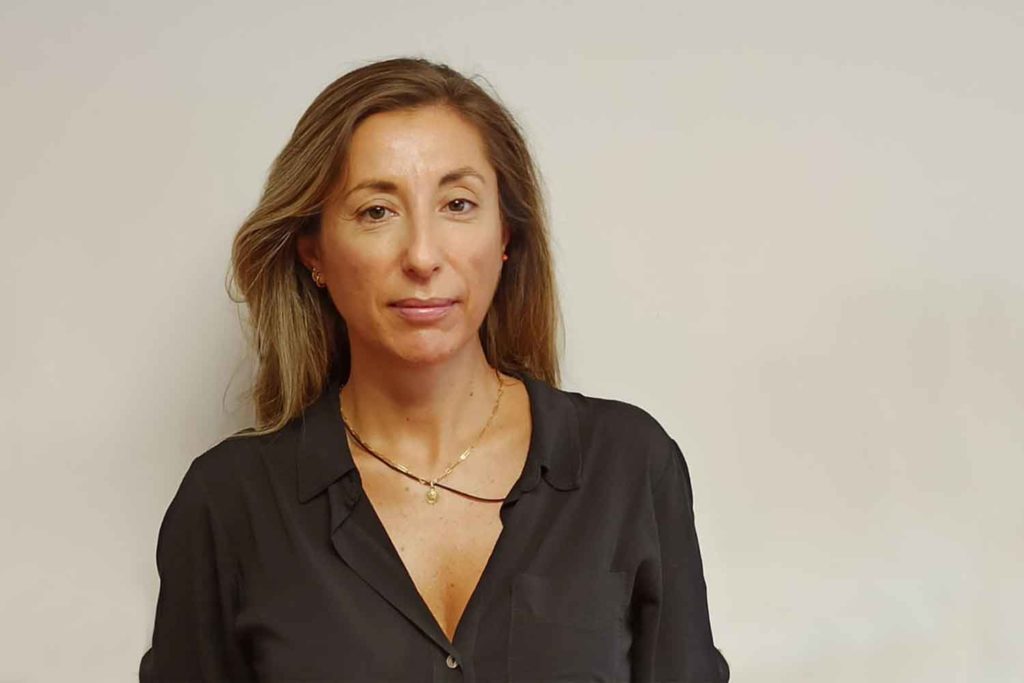Fighting for Farmers
- Leaf Print Edition
- June 1, 2022
- 0
- 15 minutes read


ITGA’s past and present CEOs, Antonio Abrunhosa and Mercedes Vazquez, reflect on the prospects for tobacco farmers in a rapidly changing business environment.
By Stefanie Rossel
In November 2021, Mercedes Vazquez took over as CEO of the International Growers’ Association (ITGA). She succeeded Antonio Abrunhosa, who announced his retirement after serving in the position since 1998. In a three-way conversation with Tobacco Reporter, the tobacco industry veterans shared their views on the past, present and future of tobacco farming.
Tobacco Reporter: Mr. Abrunhosa, in your 22 years at the helm of the ITGA, how has the leaf growing sector changed?
Antonio Abrunhosa: The main changes I witnessed in my tenure were the moves to decrease production in high-cost countries and move it to developing or underdeveloped countries, with much lower costs of production, especially salaries, which are the main [cost] component in many producing countries. Production went down by almost 1,200 million kg in the USA, Canada and the European Union in 30 years, and it increased by a similar amount in Brazil, Zimbabwe and Malawi, Tanzania and Zambia in the same period. Sales also switched from the auctions system, which prevailed in the U.S., Canada, Zimbabwe and Malawi, to contract growing—the Brazilian system. All this meant a substantial decrease in the [significance] of commercial, large-scale farmers—especially in Zimbabwe after land reform—and a radical loss of bargaining power of millions of growers all over the world [who were] facing seven main buyers with an oligopolistic power seldom seen in other sectors.
Then there was the invasion of tobacco regulation into all aspects of common life, in almost all countries, at different speeds and with different impacts, but [it] translated into the almost total absence of smoking in any public areas anywhere outside of China, and the disappearance of tobacco advertising from almost all media and sponsorship of public events. A visual example of this change can be seen by watching the difference between the Mad Men series and any recent movie of people in offices today.
That regulation got a totally different scale with the creation of the Framework Convention on Tobacco Control (the FCTC) by the United Nations, the first world treaty of the World Health Organization, which turned many dispersed local anti-tobacco initiatives into international law and created an enormous, rich and global anti-tobacco industry with thousands of NGOs [nongovernmental organizations] and companies, funded by public money, covering the whole world.
Furthermore, the technical revolution started by electronic cigarettes, vaporizers and heated-tobacco has deeply changed the consumers’ market and will continue to do so.
In the past years, the world has become much more aware of the dangers of reckless economic development based on the depletion of vital natural resources and the impact of such economic models on the planet’s capacity to sustain a population that has increased more in the past 30 years than it had in all the [previous] centuries. This awareness is impacting all kinds of businesses, especially in agriculture and, thus, in tobacco growing. That attention has pushed tobacco companies to request more and more stringent conditions of production from growers, especially in sensitive areas like labor conditions and child labor, deforestation, use of chemicals and water management.
These four changes have created a completely different tobacco sector compared to the one we had 20 years ago.

What has the ITGA done to help its members cope with these challenges?
Abrunhosa: Those changes impacted ITGA heavily, as some of its founder members lost thousands of growers and volume of production.
The widespread move to contract growing also meant a much more dependent relationship between growers and buyers, requiring a more intervenient role of ITGA in those relations and in the relations between growers and their governments.
ITGA’s role was also radically modified due to the inclusion into the FCTC of articles conditioning the ways in which growers could produce tobacco in the future or even aimed at ending tobacco production altogether. This required a much stronger presence of ITGA in international fora and a continuous participation in all kinds of members’ initiatives related with national or international issues affecting their businesses.
How much has actual tobacco farming changed during your tenure?
Abrunhosa: The pressure from the public and the published opinion about environmental and business sustainability, especially in a sector as controversial as ours, prompted the main buyers to [implement] radical measures in the management of their supply chains.
As it happens often in corporate praxis, research was done, plans were designed and screaming orders came down the corporate ladder, with little attention given to the opinions of the final and central recipients of those orders—the growers.
The typical case is GAP [good agricultural practices], about which I have said in many meetings that it threatens growers with the big stick of contract suppression in case they disrespect the unending list of mandatory rules for their production but seldom, if ever, shows the carrot of better prices to cover the increased costs that those rules imply.
Child labor is a typical case. Moving production to a country like Malawi requires acknowledging the fact that local infrastructures for childcare are limited or nonexistent. This means that parents have nowhere to leave their children while working—in environments with wild animals. And, in recent years, particularly now, significant increases in the costs of production have not been followed by correspondent increases in tobacco prices. That means additional difficulties for growers to hire workers.
Acknowledging these problems, ITGA, together with IUF, the main worldwide trade union for agriculture workers and almost all the important tobacco companies, except Indian and Chinese ones, created an international foundation, the ECLT, based in Geneva, which, for more than a decade now has been implementing projects in tobacco areas all over the world to address the problem.
What achievements are you most proud of?
Abrunhosa: I am most proud of having established ITGA as the world brand for tobacco growers in spite of the increasingly difficult regulatory, structural and financial conditions of the sector; of our members and of ITGA’s office, which always had between two and four officers. This was particularly relevant when the anti-tobacco lobby, much reinforced by the FCTC, aimed at legally banning tobacco production.
I am also proud of having been able to pass this heritage to the highly capable hands of my successor, Mercedes Vazquez.
Ms. Vazquez, what, in your view, are the most pressing issues for farmers now and in the midterm?
Mercedes Vazquez: Pricing and sustainability, which are intrinsically linked. Sustainability includes all social and environmental challenges but also—and most importantly from farmers’ point[s] of view—the economic survival of their businesses. Without it, other sustainability issues become irrelevant. For years, we have been trying to make this message get through, especially during the prolonged period of stagnation in prices combined with rises in costs of production everywhere.
Now, considering the unprecedented times we are living in, after two years of the pandemic and still comprehending the realities of the war in Ukraine, “long-term” in tobacco production is 12 months. Consequently, in some countries, growers are moving to more profitable crops. If we consider the generational problem in agriculture where youngsters do not feel attracted to follow their family businesses plus this demoralizing scenario, in countries not too dependent on tobacco, companies will face a gap to fulfill their demand for clean, good-quality crop.
For highly dependent countries, there is not a cent that has not been squeezed to the limit. Unless substantial changes are made—mainly in poverty alleviation to grant margins that will allow growers to be in compliance with good agriculture practices—sustainability of the sector will be ever more at stake. Changes will only happen with all main players involved, and ITGA will do its part on behalf of our growers’ associations and tobacco growers in general.

What are your plans to help ITGA members to cope with these challenges?
Vazquez: ITGA is at the core of the tobacco conversation. We have been around for almost 40 years. Our experience and global network capacity make us a pivotal player in all discussions related to tobacco around the world. More than ever, we need to work as the vehicle to spread growers’ messages and to promote dialogue among key players in the sector. Outside the sector, ITGA is liaising with agriculture agencies and entities to make sure tobacco growers are taken into account in the global sustainability agenda. With this, we also mean to normalize our sector in the global context, getting rid of the negative connotation we have carried all these years.
Our main concerns are related to those developing countries that are very reliant on tobacco production. There is no transition plan for the near future. To a certain extent, this is due to the lack of collective work done in this regard. After two years of pandemic with limited access or none to our growers’ gatherings, ITGA is committing its time and resources this year to meet them, to bring them together and make their voices be heard. We feel that there is momentum to raise this united collective voice, and growers are responding to this call.
This shouldn’t require a special mention in the 21st century anymore, but you are the first female CEO in the ITGA’s history and one of only a few women at the top of a tobacco-related organization. What is it like?
Vazquez: It seems pretty normal to me because during my more than 10 years of work in ITGA, I have never had reason to think that this could not be possible at some point if I made my work meaningful to our members. I never worked thinking about becoming the CEO, though, and this was important, too, because it did not get me distracted and allowed me to focus on my duties and in making my work worthwhile. The process was very natural, but I think the turning point was my personal investment, going to visit all members’ associations and getting to know their boards and staff. Now I can say—and I think my members would agree—we have built a personal relationship, and I am very close to most of them.
Are we going to see a stronger ITGA focus on gender equality and the issues facing women in the tobacco cultivating sector?
Vazquez: I will do everything in my powers to advance this agenda. Before becoming the CEO, I have always done my best to shed light on women working in the tobacco sector and more specifically those involved in tobacco production. I introduced this item into ITGA’s key priorities with no objection [from others]. The current edition of our flagship publication, The Tobacco Courier, pays tribute to women in tobacco, and we managed to interview many of them from various parts of the globe. I highly recommend the reading of these interviews to learn about their realities. What got my attention was to see that regardless of their specificities, they all agree about the need of education and capacity building. They all want to improve and become more relevant in business decision-making. I have met many of them, and they are all a source of inspiration.
What are the ITGA’s goals for the future?
Vazquez: The future has never been as uncertain as it is now. ITGA must keep advancing the growers’ legitimate and independent agenda. Tobacco production has dramatically changed over the years, diminishing growers’ control over their product. Twenty years ago, the scenario was very different with auctions operating at a higher rate than contracts. ITGA is here to assess the impact of these changes, to help growers make informed decisions through market analysis and [to improve] our tools to provide accurate information. We aim to bring the sector together and expand our network to run efficient advocacy. At this moment, we need to put pressure in the pricing improvement as a paramount issue, and growers are telling us that this is the time to act and to speak out, so we will be up to these expectations.
Provided the challenges for the tobacco growing sector, such as the continuous global decline of cigarette consumption, will persist, where do you see the ITGA and its members 22 years from now?
Vazquez: In 22 years from now, I honestly believe that unfortunately some, not to say many, tobacco farmers and ITGA members will be out of this business. This can happen overnight, as we witnessed with the case of Colombia. Only the ones with the ability to absorb the increasing demands and with a diversified portfolio will remain. Some will be forced to disappear; some others will simply move out.
Tobacco growers’ associations are rare these days. Those remaining are ITGA members. Unless their governments reinforce their role and make sure they are included in every conversation taking place about tobacco, its contribution, its future, its sustainability … at some point, they will be made redundant by companies, taking over their part with the direct contract system.
As for ITGA, we will stick to our commitment even after that. If there is no tobacco production the way we see it now, there will have to be a transition for those vulnerable growers forced to quit. Consumption is declining at a fair pace to permit the changes needed for this sector to adapt. The problem is that farmers are getting ambiguous messages that stimulate productions in some regions while depreciating it in others, and that situation continuously changes. Our partners should be more consistent in that regard because this uncertainty is certainly harming this industry.

